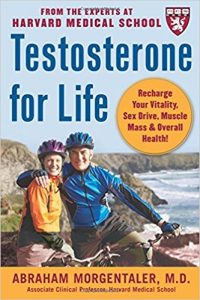I just want to feel better but how?
Have you been experiencing weight gain, mood swings, sleep disorders, low or absent sex drive, memory disorder, the feeling of being tired or sluggish?
Have you been told that you have chronic fatigue, depression, thyroid disorder or fibromyalgia?
These and a host of other very common health problems can usually be traced to underlying deficiencies or imbalances of hormones in the body. Our bodies’ hormones must be in proper balance and harmony for us to function properly and feel our best. In fact, it is the imbalance and insufficiency of these hormones that cause us to age.
Rebalancing our bodies’ hormones with safe and natural Bio-Identical Hormone Therapy has shown tremendous health benefits that can often correct the health problems mentioned above while allowing us to live longer, age more gracefully, and with better health. This is precisely what Complementary and Alternative Medicine (CAM) is all about. CAM treats the whole body as a system to restore balance and ideal function, and to eliminate disease at the root. This is not like the usual medical approach where a patient reports a symptom and the doctor prescribes a drug to suppress that symptom – without addressing the imbalances that are at the root of the problem. CAM has given hope, health and relief to many patients who were being
treated unsuccessfully for their symptoms.
Because Bio-Identical Hormones are exact clones of the hormones produced and metabolized within the body, the risks that are associated with “synthetic hormone treatments” are not seen. Benefits of Bio-Identical Hormones include increased sex drive, improved sleep, improved exercise tolerance, improved muscle tone and weight loss, improvement in memory, reduced risk of cancer and heart disease and more.
Bioidentical Hormone Replacement Bioidentical hormones offer a natural, effective way to supplement hormone levels and treat symptoms of hormone imbalance without the reported side effects of conventional HRT.
In Depth: Hypothyroidism
Subclinical Hypothyroidism is a state of underactive thyroid gland activity that is not detected by conventional laboratory means. Well over 65% of the cases of hypothyroidism go undetected for years until the patient is so ill with symptoms that they themselves suggest the diagnosis to the doctor. All too often, physicians miss the diagnosis of hypothyroidism despite several classic symptoms because they rely solely on a single predetermined lab value (TSH) that was established over 50 years ago! In response to this, the Endocrinology Society Association of America revised the diagnostic levels of TSH thus “allowing” for more people to meet the criteria for diagnosis of hypothyroidism. Actually, subclinical hypothyroidism can be diagnosed by an astute physician through physical examination, patient based symptomatology, and evaluation of urine temperatures. Lab values should just be used as an aid in the diagnosis rather than the key to diagnosis. There have been advances in lab evaluation utilizing saliva, which is much less expensive than blood testing, but the key factor in testing is to be sure that your doctor obtains levels of both free T3 and free T4. These measure the actual thyroid hormones rather than the messenger brain hormone (TSH) currently used as the gold standard in conventional medicine.
Treatment is directed at supplementing what is missing. Traditional physicians most often prescribe Synthroid or Levoxyl, which is strictly T4. T4 is the most abundant thyroid hormone but it is not very active. T3, which comprises less than 15% of all the thyroid hormone in the body, is the active hormone. T3 is what is responsible for preventing, treating, and reversing symptoms of hypothyroidism. I prefer to use animal-based desiccated thyroid hormone containing both T3 and T4 in a ratio that is physiologic to the body. Also available is a synthetic non-animal based combination with a similar ratio of T3/T4. Each has their role and treatment should be individualized.
Untreated hypothyroidism can significantly affect quality of life and lead to misdiagnoses since many doctors attribute the constellation of patient symptoms to Chronic Fatigue Syndrome, Fibromyalgia, Lyme disease and most unfortunately and too frequently, Depression. Don’t let yourself be a victim of this easily treatable disease. If you think you fit some of the criteria mentioned in this article, insist that the diagnosis be entertained.
For more information about hypothyroidism call us at 541-383-3424
